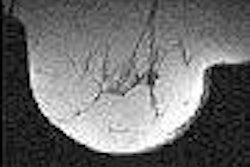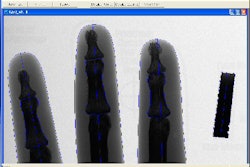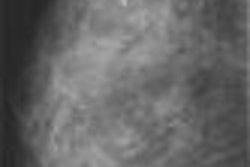A recent survey on cancer incidence found that the number of cancers declines for adults over the age of 80. But just when it seemed there was some good news about aging, researchers from the University of California questioned whether this decrease may simply be due to older people stopping their regular screening.
Robert Kaplan, Ph.D., and Dr. Sidney Saltzstein took a closer look at whether reduced mammographic screening explained this downturn in breast carcinoma in older women. Kaplan is the chair of the department of health services at the University of California, Los Angeles School of Public Health. Saltzstein is also with UCLA, and with the departments of family and preventive medicine, and pathology at the University of California, San Diego.
"The relationship between age, tumor characteristics, sojourn time, and screening is complex.... As age increases, sojourn time also becomes longer. Thus, screening women in their 50s and 60s results in reductions of incident cases later in life," they wrote in the Journal of the American Geriatrics Society (March 15, 2005).
In addition, arguments abound that screening women age 75 and older is fruitless as older women with undetected breast cancer may be more likely to die from other causes, the researchers pointed out.
For this study Kaplan and Saltzstein evaluated cross-sectional data for invasive carcinoma and carcinoma in-situ (CIS) from the California Cancer Registry (CCR); the Surveillance, Epidemiology, and End Results (SEER) Program; and the Behavioral Risk Factor Surveillance System (BRFSS).
The results showed that CIS of the breast was most common for women ages 70-89. However, breast CIS dropped to the third most common form in women age 90 and older. The rate of breast CIS per 100,000 women peaked at ages 70-74 before declining. The researchers found a highly significant correlation between screening and breast CIS.
"Mammography increases with age until age 50 to 54 and then plateaus," they wrote. "Then, beginning with age 75 to 79, mammography systematically declines, clearly paralleling the decline in breast CIS."
In their conclusion, Kaplan and Saltzstein emphasized the importance of using separate age categories for people age 75 and older. By lumping these women into one age group, researchers may miss out on relevant breast cancer trends, they said, including pseudodisease. Labeling the latter as "subclinical disease that has little or no importance" may not be entirely accurate.
"The question is whether the rate of disease continues to increase with age," Kaplan explained in an e-mail to AuntMinnie.com. "We believe that it does, and that the reason some studies show decreases in the oldest groups is because doctors stop ordering the test."
The American Geriatrics Society suggests annual or biennial mammography until age 75, followed by testing every three years for women with a life expectancy of no less than four years.
However, when it comes to other types of screening such as for prostate or colon cancer, the accepted cutoff point for all screening is a life expectancy of 10 years or more, according to presenters at the 2005 American College of Physicians (ACP) meeting in San Francisco. Kaplan agreed that the same rule of thumb is most likely being applied in breast cancer screening.
While the authors stress the importance of accurately tracking disease trends in older people, particularly as the population lives longer (past 84 years), they are not advocating that increasingly overburdened, short-staffed mammography services begin screening these women.
"Since much of the disease in the oldest women is not clinically important, we do not recommend testing older women," Kaplan said. "I think we could use resources more wisely by focusing on women most likely to benefit from screening. The evidence best supports screening women between the ages of 50 and 74."
By Shalmali Pal
AuntMinnie.com staff writer
April 25, 2005
Related Reading
Biennial mammography appears suitable for older women, December 15, 2004
Breast cancer screening after age 80 questioned, October 29, 2004
Radiotherapy may not be needed for elderly women with early breast cancer, September 2, 2004
Copyright © 2005 AuntMinnie.com



















